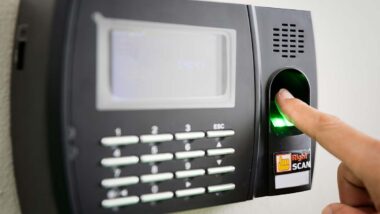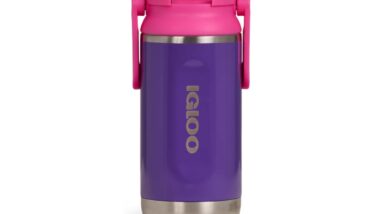Top Class Actions’s website and social media posts use affiliate links. If you make a purchase using such links, we may receive a commission, but it will not result in any additional charges to you. Please review our Affiliate Link Disclosure for more information.

According to the department’s press release, the DoJ took action against five companies and three individuals in two separate civil action lawsuits. Defendants in the first case include Ecommerce National LLC d/b/a TollFreeDeals.com, SIP Retail d/b/a sipretail.com, and their owners/operators Nicholas and Natasha Palumbo. The defendants in the second case include Global Voicecom Inc., Global Telecommunication Services Inc., KAT Telecom Inc. aka IP Dish, and owner/operator Jon Kahen.
The Department of Justice claims that these companies facilitated phone calls through voice over internet protocol (VoIP) carrier services which violated robocall laws, causing financial harm to elderly in breach of the Elder Abuse Prevention and Prosecution Act (EAPPA), as well as injury to other vulnerable individuals.
Through these services, fraudulent criminals were reportedly able to use an internet connection to contact consumers. According to the Department of Justice, the services allowed criminal organizations to pose as emergency services, government authorities, or credible businesses.
During a 23 day period, 720 million calls were reportedly carried out by TollFreeDeals.com. Of these, the Department of Justice alleges that over 425 million were fraudulent and used fake caller ID numbers.
Call recipients may have been threatened with “catastrophic” government actions through these calls, according to the justice department. This reportedly included deportation, termination of social security benefits, arrest for tax fraud, and more.
“Robocalls are an annoyance to many Americans, and those that are fraudulent and predatory are a serious problem, often causing devastating financial harm to the elderly and vulnerable members of our society,” noted Assistant Attorney General Jody Hunt of the Department of Justice’s Civil Division in a statement.
Although the defendants were not the perpetrators of the fraudulent schemes, the Department of Justice argues that they contributed to the schemes by providing an avenue for illegal robocalls.
“The Department of Justice will pursue to the fullest extent of the law individuals in the United States who knowingly facilitate imposter fraud calls, using both criminal and civil tools where appropriate,” Hunt continued in her statement. “And we look forward to working closely with law enforcement colleagues in India and elsewhere around the world to identify those behind these calls so that we can bring them to justice.”
U.S. Robocall Laws
Generally, most companies are held liable for robocalls in America under the 1991 Telephone Consumer Protection Act (TCPA). Although the Department of Justice’s recent actions were not taken under TCPA, this law is one of the most powerful tools consumers can use when faced with robocalls.
TCPA prohibits the use of automatic dialing systems to place phone calls without consumer consent. Even if a business has an established relationship with a consumer, they are not allowed to place telemarketing calls or texts without prior express written consent. The newly signed Traced Act further enables justice, providing U.S. regulatory bodies with four years to pursue the criminals, and increasing the penalties for those who knowingly break robocall laws.
If a business intentionally violates U.S. robocall laws, they may be forced to pay up to $1,500 in statutory damages for each violation (i.e. each call or text). This can add up for big businesses, as Target just settled a TCPA suit for over $7 million.
Join a Free TCPA Class Action Lawsuit Investigation
If you were contacted on your cell phone by a company via an unsolicited text message (text spam) or prerecorded voice message (robocall), you may be eligible for compensation under the Telephone Consumer Protection Act.
This article is not legal advice. It is presented
for informational purposes only.
ATTORNEY ADVERTISING
Top Class Actions is a Proud Member of the American Bar Association
LEGAL INFORMATION IS NOT LEGAL ADVICE
Top Class Actions Legal Statement
©2008 – 2024 Top Class Actions® LLC
Various Trademarks held by their respective owners
This website is not intended for viewing or usage by European Union citizens.















23 thoughts onDoJ Takes Action Against Violation of Robocall Laws
Please add me. I’m on the no call list and I get them all day. Telling me about my ssi being taking etc I am sick of it. And I only have a landline. It’s really gotten out of hand!!